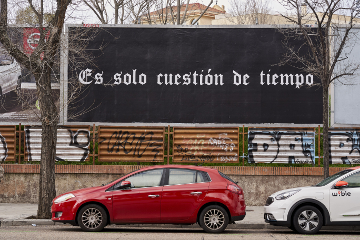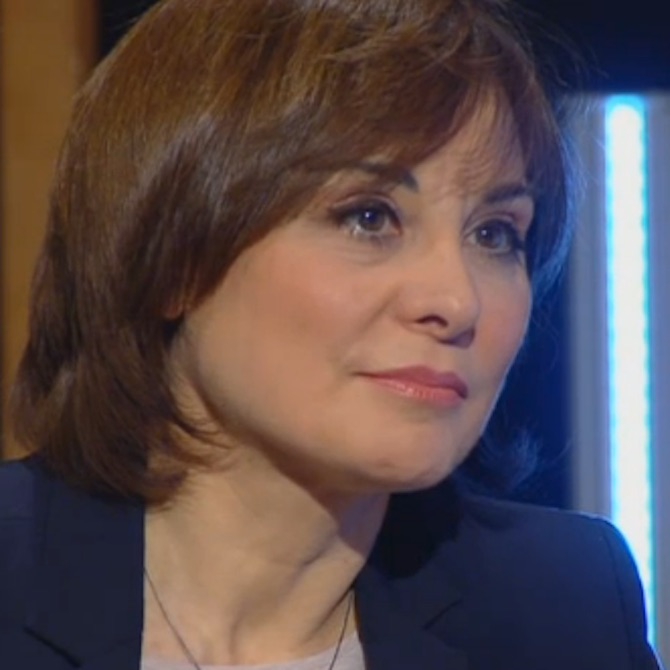Search
To search for an exact match, type the word or phrase you want in quotation marks.
A*DESK has been offering since 2002 contents about criticism and contemporary art. A*DESK has become consolidated thanks to all those who have believed in the project, all those who have followed us, debating, participating and collaborating. Many people have collaborated with A*DESK, and continue to do so. Their efforts, knowledge and belief in the project are what make it grow internationally. At A*DESK we have also generated work for over one hundred professionals in culture, from small collaborations with reviews and classes, to more prolonged and intense collaborations.
At A*DESK we believe in the need for free and universal access to culture and knowledge. We want to carry on being independent, remaining open to more ideas and opinions. If you believe in A*DESK, we need your backing to be able to continue. You can now participate in the project by supporting it. You can choose how much you want to contribute to the project.
You can decide how much you want to bring to the project.

“The phone rings. Felix is dead. How? Felix is dead, I saw it in the newspaper. No, it can’t be. We knew about Ross, but Felix… We thought about Ross, about the possibility of death, about his disappearance. We tried to convince ourselves that he’ll always be here, that we can keep him alive. We fought to keep Ross. But Felix, without Felix, everything falls apart, every moment, all the love for Ross. The light bulbs, the papers, the birds flying in clouds of black and white. The passports to freedom.”
That’s how begins Contarlo todo sin saber cómo (To tell everything without knowing how) the novel/exhibition that Martí Manen wrote/curated in 2012. Felix was, of course, Felix Gonzalez-Torres, an artist of conceptual, political and minimalist work, of small gestures and great emotional impact. The light bulb that goes out too soon, the pile of candies that decreases as they disperse, the synchronized clocks, the unmade bed shown on a billboard in the public space … made him a key artist of the 90s. His approach to issues such as AIDS, sexual and racist violence or the role of art in contemporary society based on the poetic and metaphorical potential of everyday objects had a great impact on artists, critics and curators of his and subsequent generations. Two years after his death, in 1998, the memory of Felix González-Torres articulated the second edition of Manifesta in Luxembourg. The legacy of Felix Gonzalez-Torres has been maintained thanks to the work of his gallery Andrea Rosen or curators like Nancy Spector, who have shown and kept his work alive.
Maribel López, director of ARCO, is one of those art professionals influenced by Felix González-Torres. Always close to the artists, as a curator, gallery owner or manager, it’s not strange that this first edition of ARCO directed by her, makes a parenthesis in the formula of the invited countries (in the end, we all live in the same country, called Capitalism, Bong Joon-ho said recently… but that’s another story…) and focuses on the artists. How important to remember from time to time the reason why we are here, the origin of all this: the artists!
It’s Just a Matter of Time is the title of Felix Gonzalez-Torres’ public space intervention in 1992 and it is also the title of the small but forceful section with which ARCO pays tribute to the artist from the works of other artists which allude to/ remember/ are allied with the spirit of Felix Gonzalez-Torres. Memory, the ephemeral, the fragile, the personal, emotion, feelings, dispersion or absence appear in the proposals of Liam Gillick, Danh Vo, Pepe Espaliú or Jack Pierson, among others.
And to start there, suddenly conditions a visit completely different to a fair, in which everything seems to breathe more and in which there is time for talks, meetings, public presentations, exhaustive and in-depth information about the works, and let’s hope that this also translates into the quantitative aspects: sales, the start of new collections and the consolidation of others and new projects that do not forget to put the artists in the centre, since without them the ecosystem of art would not make sense.

Montse Badia has never liked standing still, so she has always thought about travelling, entering into relation with other contexts, distancing herself, to be able to think more clearly about the world. The critique of art and curating have been a way of putting into practice her conviction about the need for critical thought, for idiosyncrasies and individual stances. How, if not, can we question the standardisation to which we are being subjected?
www.montsebadia.net
"A desk is a dangerous place from which to watch the world" (John Le Carré)